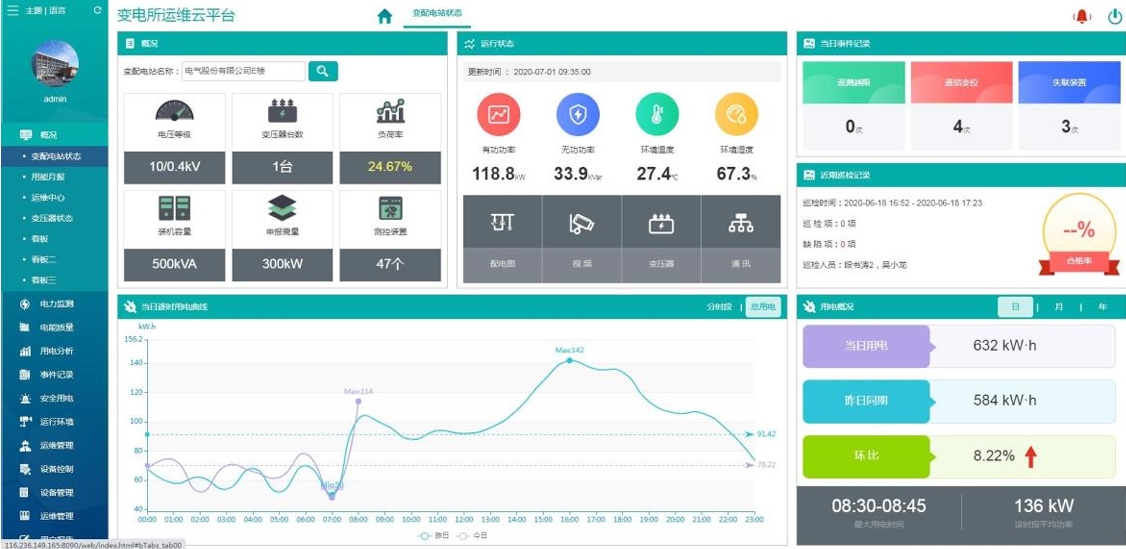Integrated Energy Management Services
Integrated energy management involves the scientific and precise planning, organization, inspection, supervision, and control of the entire process of energy production, distribution, conversion, and consumption. It ensures that all steps from production to usage are well-planned and regulated. Through intelligent energy management systems, it achieves efficient, safe, and sustainable energy utilization.
Policy Background
In recent years, the government has introduced a series of policies and regulations to improve the energy management system and promote energy conservation and emission reduction. For example, the Energy Conservation Law and the Notice on Issuing the Implementation Plan for the Construction of Energy Management Centers in Enterprises in the Steel, Petroleum and Chemical, Building Materials, Nonferrous Metals, and Light Industry Sectors issued by the Ministry of Industry and Information Technology aim to strengthen corporate energy management and enhance energy efficiency.
Current Status and Challenges of Energy Management
The current energy management faces the following major issues:
-
Lack of Data Collection Methods: Absence of unified data collection tools and complex data sources affects the accuracy of energy distribution and consumption.
-
Difficulty in Data Analysis: Requires specific analysis for different scenarios to promptly allocate energy such as water, electricity, steam, and fuel.
-
Challenges in Energy Security and Management: Inability to provide real-time feedback on anomalies, difficulty in tracking fault points, and significant safety risks.
-
Extensive Management Methods: Lack of scientific and systematic management approaches leads to resource waste and low energy management efficiency.
Solutions
To address these challenges, Langsheng Electric proposes a series of technical approaches aimed at improving energy efficiency and safety through intelligent management. Specific measures include:
-
Low-Cost Electricity Acquisition: Utilizing clean energy such as solar, wind, and hydro power to build smart stations and reduce electricity costs.
-
Precision Energy Management: Implementing accurate energy consumption management through smart terminal monitoring devices, communication management machines, terminal equipment, and software platforms.
-
Scientific Production: Combining changes in production operation parameters to promptly allocate energy and optimize energy use during production.
-
Efficient Operations and Maintenance: Real-time monitoring and optimization of production processes to enhance emergency response capabilities and reduce accidents.
-
Asset Optimization: Establishing equipment records and rationally allocating resource needs to improve resource utilization efficiency.
Platform Advantages
The Langsheng Integrated Energy Management System platform offers the following advantages:
-
Real-Time Monitoring and Centralized Management: Cross-site, cross-platform monitoring system enables remote tracking of project operations anytime, anywhere.
-
System Integration and Simplified Operations: Multifunctional system integration improves operational efficiency and reliability.
-
Process Optimization and Energy Savings: Reliable data support enables accurate statistical analysis of processes and energy usage.
-
Smart Operations and Maintenance for Efficient Management: Comprehensive online system monitoring allows for unmanned or minimally staffed operations.
Expected Outcomes
Three Reductions ↓
-
Reduced Energy Consumption: Energy consumption is expected to decrease by approximately 10% through precision management and optimized scheduling, significantly reducing energy waste.
-
Lower Operations and Maintenance Costs: The smart operations and maintenance system enables real-time monitoring of equipment status and fault warnings, reducing the frequency and costs of maintenance and repairs.
-
Reduced Labor Costs: The intelligent system decreases reliance on manual monitoring and operations, lowering labor costs and workload.
Five Enhancements ↑
-
Improved Operational Efficiency: Intelligent monitoring and optimized scheduling of production processes enhance equipment utilization and production efficiency.
-
Enhanced Emergency Response Capabilities: The system’s real-time monitoring and warning functions enable quick identification and handling of anomalies, improving emergency response.
-
Optimized Resource Allocation: Scientific energy management and scheduling achieve optimal resource allocation, improving overall resource utilization.
-
Significant Environmental Benefits: Optimizing energy use structures and improving energy efficiency reduce carbon emissions and environmental pollution, promoting green and sustainable development.
-
Strengthened Sustainable Development Capabilities: Comprehensive data collection and analysis provide a scientific basis for decision-making, enhancing corporate energy management, controlling operational costs, and boosting market competitiveness and sustainable development.
Through this integrated system, Langsheng will help clients achieve modernized and intelligent energy management, providing robust support for long-term corporate development.

